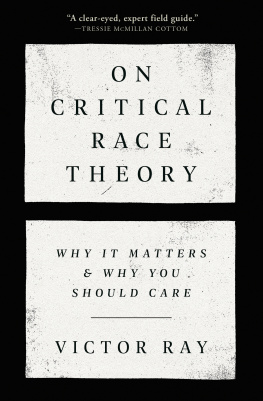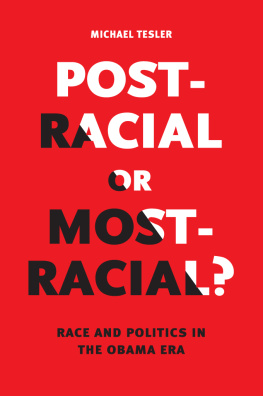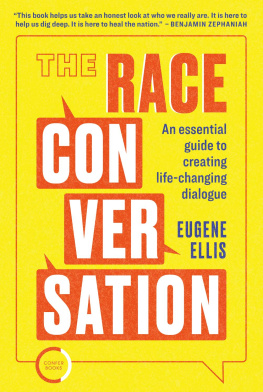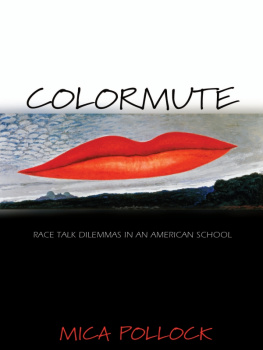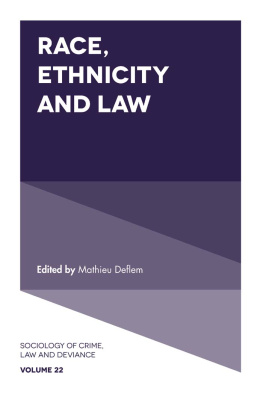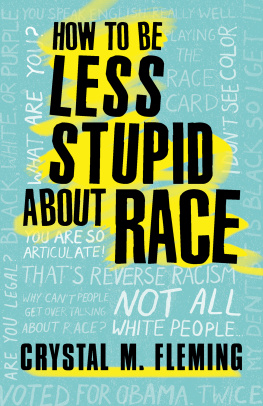Margaret L. Andersen (PhD, MA, University of Massachusetts, Amherst; BA, Georgia State University) is the Edward F. and Elizabeth Goodman Rosenberg Professor Emerita at the University of Delaware. She is the author of several books, including Race in Society: The Enduring American Dilemma; Thinking about Women, now in its eleventh edition; the best-selling anthology Race, Class, and Gender, 10th ed. (coedited with Patricia Hill Collins); Race and Ethnicity in Society: The Changing Landscape, 4th ed. (coedited with Elizabeth Higginbotham); Sociology: The Essentials, 10th ed. (coauthored with Howard F. Taylor); Living Art: The Life of African American Art Collector Paul Jones; and On Land and on Sea: A Century of Women in the Rosenfeld Collection.
She is an emeritus member of the National Advisory Board for Stanford Universitys Center for Comparative Studies in Race and Ethnicity, Past Vice President of the American Sociological Association, and Past President of the Eastern Sociological Society. She currently coaches faculty in the Faculty Success Program of the National Center for Faculty Development and Diversity. She has served in several senior administrative positions at the University of Delaware, including Vice Provost for Faculty Affairs and Diversity, Executive Director of the Presidents Diversity Initiative, Interim Deputy Provost, and Dean of the College of Arts and Sciences, among others.
Andersen has received two teaching awards from the University of Delaware and two prestigious awards from her professional organizations: the Eastern Sociological Society Merit Award for career contributions and the American Sociological Associations Jessie Bernard Award, given for expanding the boundaries of sociology to include women. In recognition of her scholarship, teaching, and service, in 2017 the University of Delaware granted her an honorary Doctor of Laws degree.
Although my writing is a solo practice, I am nestled in an extended community of scholars, friends, and colleagues who make this work possible. There are so many people who have enthusiastically encouraged this book and who, in different ways, have supported what I do. I am deeply grateful to all those who at the very beginning said, This is important; you should do it; to those who provided heartfelt encouragement along the way; to those who commented on various ideas as I worked them out; and to those who read every word of the manuscript and gave extensive substantive and editorial criticisms. I thank every one of you for the part you played.
I especially thank Peggy Nelson and Maxine Baca Zinn, sister sociologists, who read every chapter and provided detailed commentary that has made this a better book. Gabrielle Cobb: I thank you for your early feedback and excitement that helped set the tone for reaching my intended audience. Suzanne Supplee, thank you for the detailed and exquisite editing, even when you were busy with your own writing and teaching. Michelle Asakawa and Laura Sanderson provided expert editorial eyes that also improved the book. I am fortunate to have a large circle of friends, each of whom played a special part as I wrote this book. Perhaps you read part of an early draft and cheered me on; maybe you passed on constant encouragement; perhaps you talked with me about your perspective on racism; maybe you helped enhance my social media platform; or maybe you were there for conversation, fun, friendship, and a glass of wine at the end of a writing day. You are all a critical part of my circle of support, so I graciously thank David Altenhofen, Jack and Carolyn Batty, Ralph Begleiter, David Breimhurst, Mariette Buchman, Patch Canada, Patricia DeLeon, Rich and Claudia Fischer, Valerie Hans, Elizabeth Higginbotham, Jane Hopkinson, Eve Howard, Suzie Hurley, Loren Kieve, Angela March, Tony Miksitz, Denise Nathanson, Amber and Mark Petry, Sara Robins, Amy Stein, Nancy Targett, Howard Taylor, and Beth Trujillo. Your contributions helped make this project possible.
I especially want to thank my family, whom I always count on for love and support. Thank you Arlene Hanerfeld, Norman Andersen, Kimball Johnson, Mary Brittain, Jessica Hanerfeld, Sarah Hanerfeld, Debbie and Jim Lanier, Aubrey Hanerfeld, and Aden Carcopo. It was really sad losing my mom, Emma Louise Johnson, while I was in the midst of this project, but I am so grateful for her love, her appreciation of my work, and the importance she gave to education over my entire life.
I also appreciate the work of the National Center for Faculty Development and Diversity (NCFDD) Faculty Success Program (FSP). The NCFDD team and my various FSP bootcamp groups provide structure, support, and accountability that keep me moving forward. Thank you as well to the staff and leadership of Morris Library at the University of Delaware for providing the resources that enable my work.
Rolf Janke, executive editor at Rowman & Littlefield, has been enthusiastic about this project from the beginning. I sincerely thank him for his encouragement and for shepherding this project through. Thank you as well to Courtney Packard, Jo-Ann Parks, Dina Giulak, and Janice Braunstein for the logistical support that took this book through production. I sincerely thank the publishing team at Rowman & Littlefield: Linda Ganster, Nancy Roberts, Jon Sisk, and Mark Kerr. You provided encouragement and some lighthearted fun in the middle of the hard work of writing. In these days of huge transformations in publishing, I appreciate your support for my work and your vision for sharing and transmitting ideas when so much is changing around us.
To my husband, Richard Morris Rosenfeld: You have been with me through so many writing projects and your love fills my days, even when I wont talk during writing time. You have listened patiently as I read sections of this book aloud; you read chapters, caught errors, discussed content, and encouraged me even when I was having doubts about being able to do this at all. I thank you for all of that and for the many years of steering our ship together.
I MPORTANT T HINGS TO C ONSIDER
As important as it is that we do so, talking about race can be difficultfor various reasons and in different ways for different people. When holding such critical conversations, it is important for group facilitators to guide such conversations with an awareness of how easily people of color can be silenced, dismissed, and/or disputed. At the same time, facilitators should understand that some White people are reluctant to speak about race at all.
Because race will affect group interaction, it is important to establish ground rules for the discussion. If there is time, the group should discuss and agree to ground rules before discussion begins. Facilitators can then remind people of these guidelines should the conversation require such an intervention (such as when someone talks too much, when someone disputes another persons reality, if someone is reluctant to speak, or other such actions). Because people are usually unaware of how much they talk, it can be useful to use a timer to ensure that everyone has a fair chance to participate.
The following questions might be useful to facilitators as a way of guiding the conversation:
I can see why you might think that, but have you considered?
That is a common reaction; has anyone else felt the same way/heard the same thing?
How do you suppose someone experiencing [fill in the blank] might feel?
How might that be similar to (or different from) the experience of____? [fill in the blank]
I can understand why someone would think that, but have you considered where that idea comes from?
Experiencing racism is exhausting [or use another word, depending on what you hear]. I can hear that in your voice. Is there something the group can do for you?


